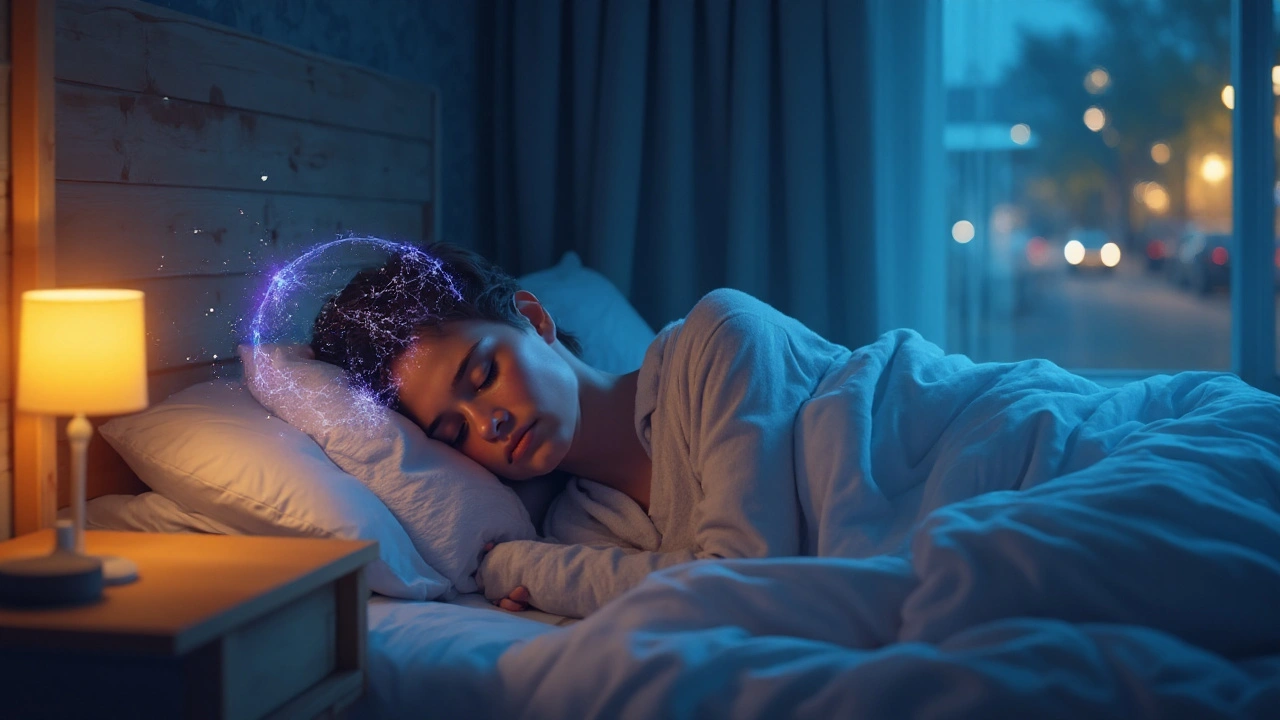Epilepsy and Sleep: What You Need to Know
If you live with epilepsy, you’ve probably noticed that sleep can be a tricky part of the day. Bad nights might bring more seizures, and seizures can mess up your sleep. It feels like a bad loop, but there are clear ways to break it. Below we’ll talk about why sleep matters for epilepsy and give you everyday tricks to get better rest.
Why Sleep Matters for Epilepsy
When you don’t get enough sleep, the brain becomes more excitable. That extra excitability makes seizure thresholds lower, so a seizure that might have stayed hidden can pop up. Research shows that sleep deprivation is one of the top seizure triggers for many people.
On the flip side, certain seizure types happen more often during sleep, especially the so‑called nocturnal seizures. These can wake you up without you even realizing a seizure happened. That’s why families often use seizure‑detecting mats or watches – they catch the event before it turns dangerous.
Medications also play a role. Some anti‑seizure drugs can make you drowsy, while others may cause insomnia. If you’re taking a drug that disrupts your sleep cycle, you might notice more daytime fatigue and a higher chance of a breakthrough seizure.
Tips to Improve Sleep with Epilepsy
1. Stick to a schedule. Go to bed and wake up at the same time every day, even on weekends. Your body loves a routine, and consistency helps keep seizure triggers steady.
2. Watch caffeine and alcohol. Both can mess with sleep stages. Limit coffee after noon and keep alcohol intake low, especially close to bedtime.
3. Create a calm bedroom. Keep the room dark, cool, and quiet. Use blackout curtains or a sleep mask, and consider a white‑noise app if you hear traffic or pets.
4. Limit screens. Blue light from phones and tablets tricks your brain into thinking it’s daytime. Turn devices off at least an hour before sleep or use night‑mode settings.
5. Check your meds. Talk to your neurologist if a medication makes you restless. Sometimes a dosage tweak or a switch to a different drug can improve sleep without losing seizure control.
6. Exercise earlier. Light activity like walking or yoga helps, but avoid intense workouts right before bed because they raise heart rate and keep you awake.
7. Practice relaxation. Deep breathing, progressive muscle relaxation, or a short meditation can calm the mind. Even five minutes can lower stress, which is a hidden seizure trigger.
8. Use a seizure journal. Write down when seizures happen, how much you slept, and any triggers you notice. Over time the pattern will show you what’s really affecting your rest.
9. Talk to your doctor about sleep‑specific meds. In some cases, doctors prescribe low‑dose melatonin or other sleep aids that don’t raise seizure risk.
10. Don’t ignore daytime naps. A short 20‑minute nap can refresh you without hurting nighttime sleep. Longer naps can shift your sleep rhythm, so keep them brief.
Getting a solid night’s sleep while managing epilepsy isn’t always easy, but these steps can make a big difference. Start with one habit, track how you feel, and build from there. Better sleep means fewer seizures, more energy, and a higher quality of life.

How Sleep Affects Partial Onset Seizures: What You Need to Know
Explore the link between sleep and partial onset seizures, learn how different sleep stages influence seizure risk, and get practical tips for better sleep hygiene.
More Detail